In the autumn I was part of a Biohacking network. The purpose of the network was to teach professionals how to create sustainable high performance in their lives.
One of the wearables that was recommended during the course of the network was blue light blocking glasses.
Once I started searching for glasses, they seemed to be showing up everywhere. According to specsavers, there was a 812% increase in searches for “Blue Light Blocking glasses” last year.
After reading reviews and realizing that there is no way of knowing which pairs are going to work, I decided to test a pair from Gatton Design.
How do blue light blocking glasses work?
Once the glasses arrived in the mail, I was surprised to find a flashlight and a card packaged with the glasses. The flashlight emits blue light, and the card absorbs it.
The point is to illustrate that adding the glasses between the flashlight and cardboard will illustrate how they protect your eyes from the blue light due to their coating.
Watch the video to see how I test the blue light blocking abilities of the glasses:
We may remember from our physics lessons in school that light comes in a spectrum. Depending what colour tint you add to your lens, it will allow certain colours to pass, while blocking others.
Blue light blocking glasses are tinted yellow – albeit imperceivable to the naked eye. They appear clear.
Do they really block blue light?
It is a cool trick that the vendor provides, showing how the glasses block blue light. But it does not say what the material on the card is made out of – so who is to say how much blue light the glasses actually block?
Luckily, I am married to a physics lecturer with access to an optical spectrometer. He puts the blue light glasses to the test – and exposes them to white light from a computer screen while measuring what light makes it through.
The white light from a screen includes mainly blue, green and red light. The video below shows how the spectrometer reads the white light, and what happens when the blue light blocking glasses are put in front of the light source:
The most interesting reading is in the blue area. The glasses reduce the amount of blue light passing by 20%. That means that 80% of blue light emitted still makes its way through to your eyes, even when wearing these glasses.
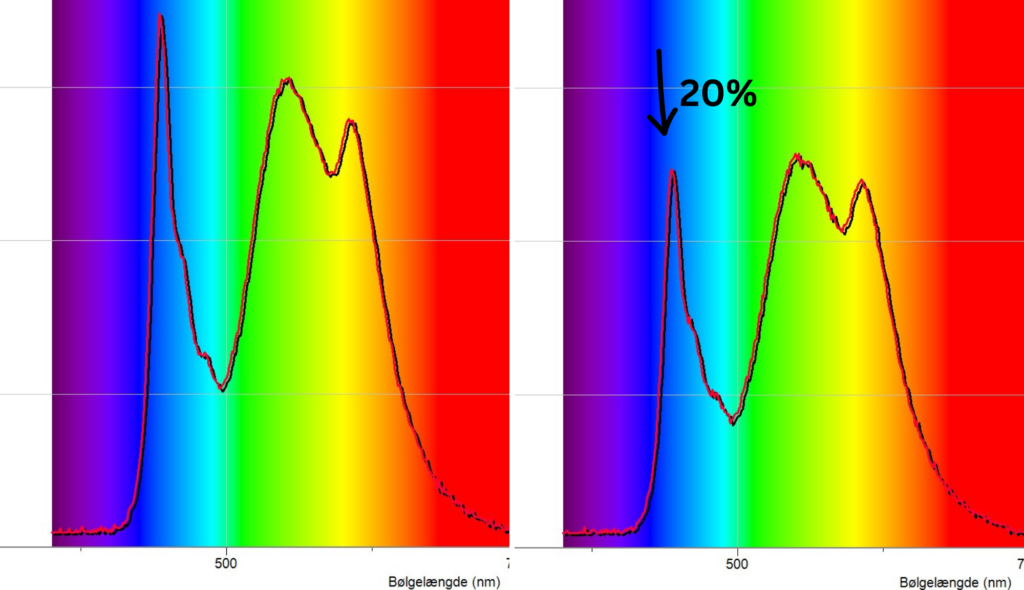
The perceptible reader will notice that other light colours are also reduced in the picture on the right. That is the consequence of coating lenses – if you remove one colour of light, you impact all.
It is hard to tell if a 20% reduction of blue light will make an impact on my REM sleep. But before we dive into that, let’s consider why we need REM sleep in the first place.
Why do we need to protect REM sleep?
When we sleep, we have four different modes of sleeping that we move through during the night. The REM stage is important, because this is where we process our day both in terms of memory and emotional processing.
If we do not get enough REM sleep, we become forgetful and have a hard time focusing during the day (source). In the context of high performance and biohacking – there is no sustainable high performance without sufficient REM sleep.
There is a hormone our brain produces that is important for ensuring that when we sleep, that we get to the REM stage. It is called melatonin. Our bodies produce this hormone naturally when it gets dark (source).
If we expose our brains to light after it is naturally dark, we risk reducing the amount of melatonin produced – thereby impacting our chances of prolonged REM sleep.
Melatonin and cortisol are the two hormones that regulate our circadian rhythm. That is the natural cycle of being asleep and waking up.
Are blue-light blocking glasses especially important for women?
There are indications that blocking blue light may be especially important for women. The circadian rhythm for men and women varies (source).
Women start producing melatonin earlier in the evening than men, and that they achieve higher concentrations of melatonin in their blood plasma overall.
This could mean that overall, women should go to bed earlier than men and might be impacted to a higher degree if exposed to light in the evening.
And that protecting women from blue light in the evening could lead to increased performance during the day.
This is a general statement based on a research article that went into depth with this topic. For me specifically, this would not apply.
Having used the OURA ring for more than six months now, I now know that my ideal circadian rhythm would be going to bed several hours later than the average male (more on chronotypes).
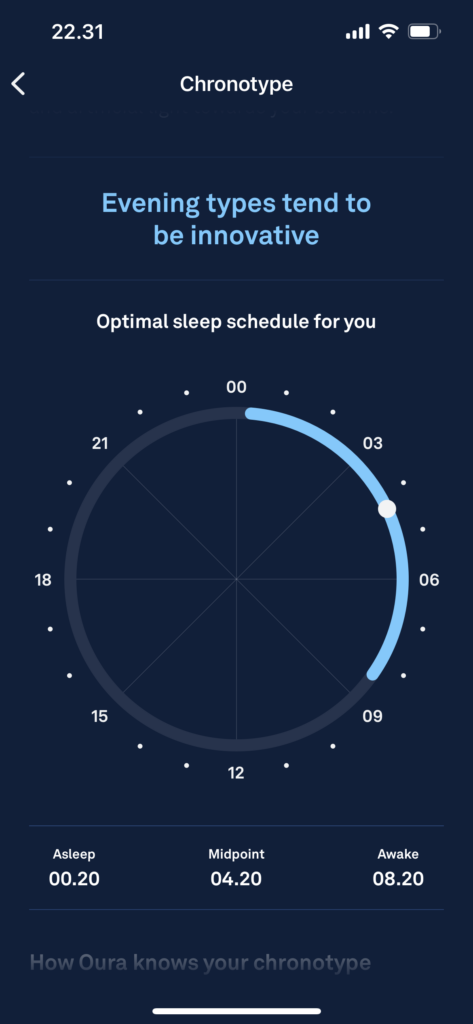
Is it worth wearing glasses to protect your REM sleep?
When wearing my glasses I tend to get annoyed with them. I get a slight headache because they press on my sinuses. If I had them fitted properly, this would not be an issue. But the question on whether it is worth investing further into this object keeps lurking in my mind.
I use my OURA ring data to track how much REM sleep I am getting on nights where I have worn the glasses, compared to nights where I have not.
The OURA ring gives me a detailed picture of the sleep stages that I go through during a night. Here is an example:
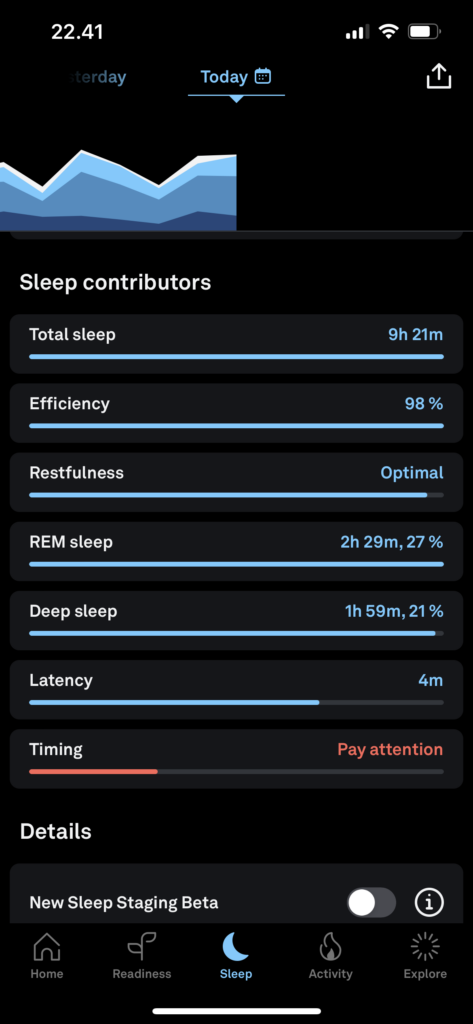
During my test phase, I am challenged by an aggressive travel schedule across multiple time zones. My readings are all over the place and it is hard to find a good reading.
Finally, I have several weeks in the same location, and can create data to compare:
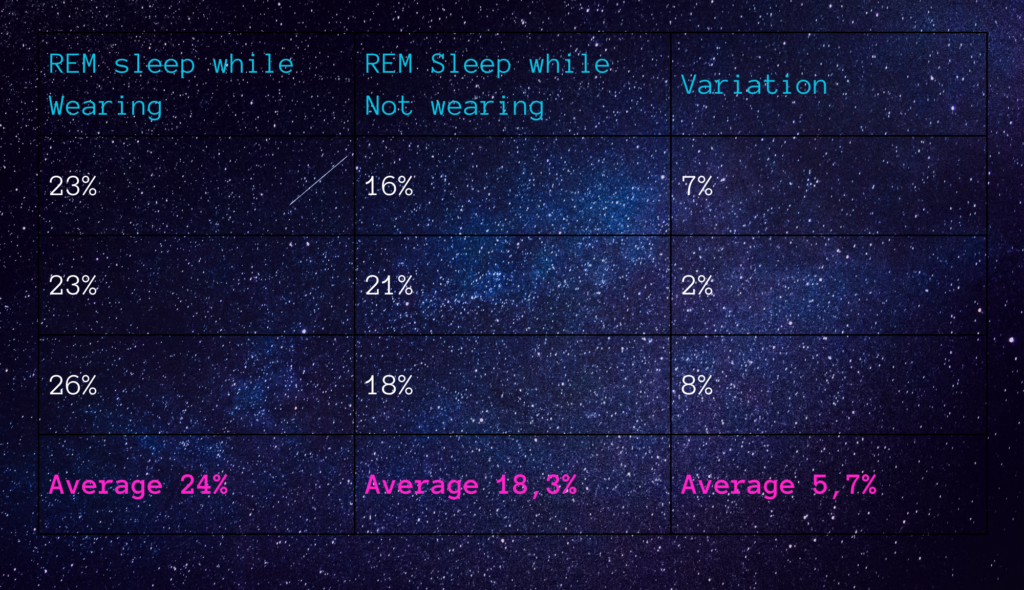
Based on these three touchpoints in the data, there is some significance in wearing these blue light blocking glasses.
It is worth keeping in mind that the percentages above are of a relatively short period of time during the night that I am in REM sleep. For the night example above, a 5,7 increase in duration of REM sleep is 3,8 minutes.
Do the results make me invest in Blue Light Glasses?
That might mean a lot for my memory storage and emotional processing. But seen in contrast with the idea that the more I sleep overall – the higher the level of REM sleep I experience in total.
I am not sure that it is enough for me to take my glasses to the optician to get them fitted.
It is very happening to wear blue light blocking glasses. Instinctively it fits well into the narrative of “reducing screen time” and that screens are bad for our health.
While blue light blocking glasses may help reduce some of the impact on our sleep patterns, it is important to understand the dynamics of sleep – and which levers to pull in your life to get the most REM sleep.
It may be wearing blue light blocking glasses. Or going to bed when you are sleepy in the evening.


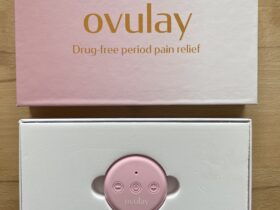
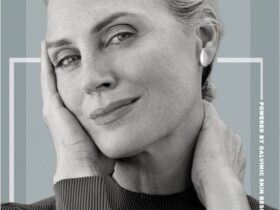
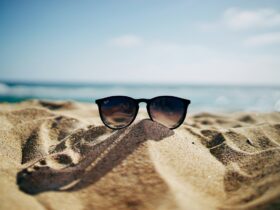

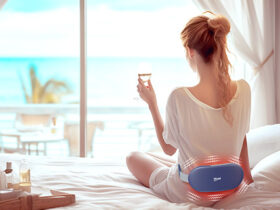


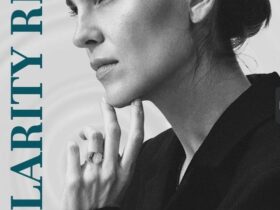
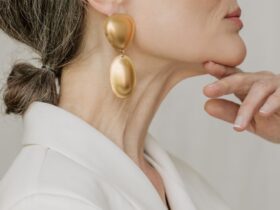


Follow us on social media